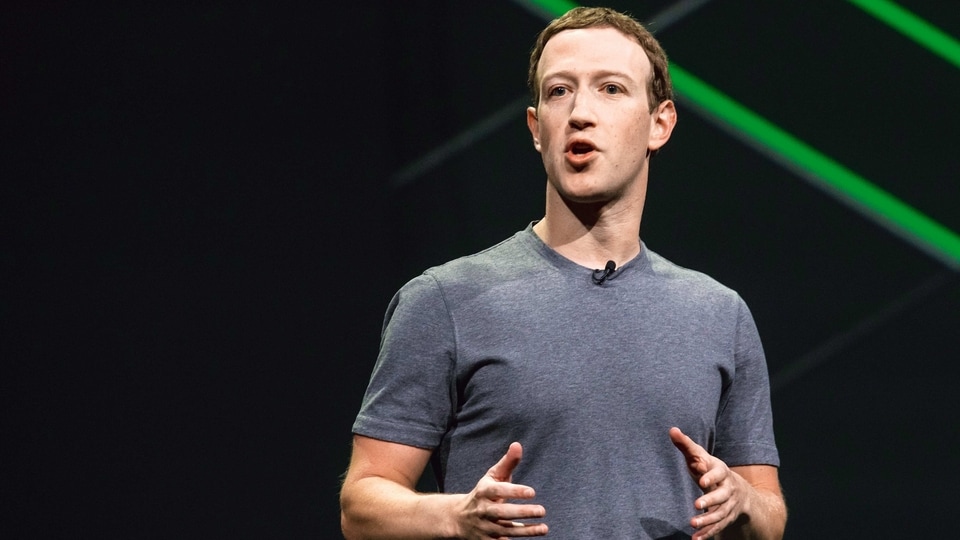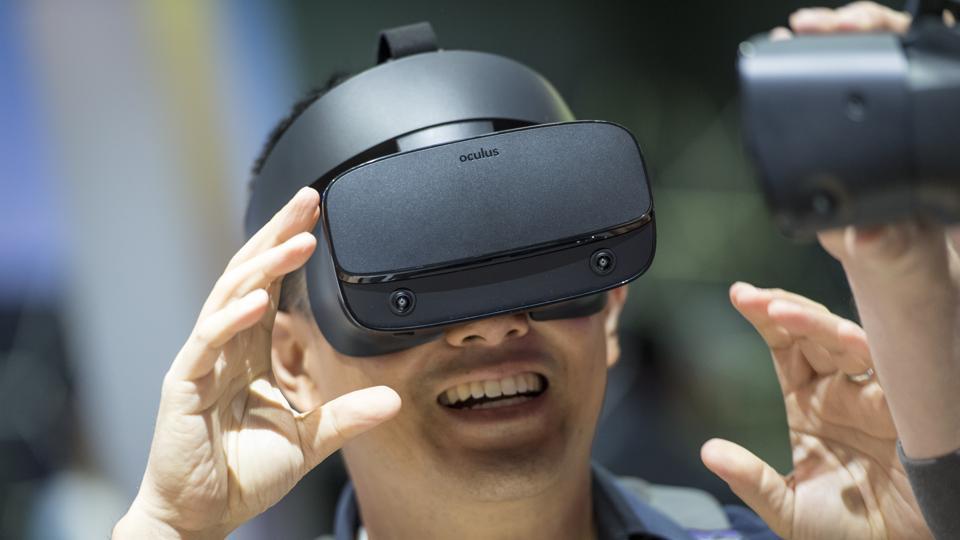Meta Killed Plans for Homegrown VR Fitness App, FTC Says in Suit
The US FTC said Meta stifled competition when it halted plans to build its own virtual reality fitness app and opted to buy Within Unlimited instead.






 View all Images
View all ImagesThe US Federal Trade Commission said Meta Platforms Inc. stifled competition when it halted plans to build its own virtual reality fitness app and opted to buy Within Unlimited Inc. instead.
“Meta itself had the intentions to enter -- and thus was a reasonably probable entrant into -- the VR Dedicated Fitness App market,” the agency said in a court filing Monday in its suit to block Meta's acquisition of Within.
The FTC is trying to persuade a federal judge to halt the deal as the agency believes it will decrease competition in the young, virtual reality fitness market and runs afoul of antitrust laws. In the filing, the agency laid out the facts key to its argument: The acquisition will keep the tech giant from entering the space through homegrown tech, therefore denying consumers the benefit of adding another competitor to the market.
The FTC said that prior to the deal, Within's team expected that Meta would try to enter the dedicated fitness app market. The tech giant had already hired Within's head of product, so the startup developed competitive strategies for its app -- called Supernatural -- “with the specter of Meta's potential entry in mind,” the FTC said.
Meta already owned a VR rhythm game in which users hit targets in time to music, Beat Saber, and its founders were excited about expanding their product into a dedicated fitness app, the filing said. In early 2021, the Beat Saber team began planning and presenting the move internally.
“Meta already has engineers with the skill set to both expand Beat Saber into fitness and to build a VR dedicated fitness app from scratch,” the filing said.
As of March 2021, internal presentations were focused on transitioning Beat Saber to a dedicated fitness app. By June, those efforts were put on hold when Meta decided to pursue a Within acquisition instead.
Meta revealed the acquisition in October, one day after announcing it would change its name from “Facebook” -- a move that canonized a shift in the company's focus from solely social media to building and commercializing a virtual world. The digital universe, or metaverse, being built by Meta is its biggest new bet and what Chief Executive Officer Mark Zuckerberg is pitching as the future of how people connect online.
The FTC sued to block the deal in July, a move in line with FTC Chair Lina Khan's aggressive approach to antitrust enforcement. The FTC claims that Meta would eliminate future competition in a new market, often referred to as “nascent competition.” The agency rarely sues using that legal theory given the difficulty in proving a deal would tamp down the potential of a young industry. The last time the FTC brought such a case, in 2015 involving sterilization technology, the agency lost.
From 2020 through September 2022, Meta has spent $31 billion on the division working on the metaverse, Reality Labs. That includes the acquisitions of nine virtual reality app studios over the past three years. Meta already makes the most widely used virtual reality headset, Oculus, and its VR app catalogue called the Quest Store.
The FTC says the virtual reality fitness market already has a high barrier to entry, which is made more difficult because Meta controls the app store on the most popular headset.
“Buying Within was not the only way Meta could have developed the production capabilities and expertise needed to create a premium VR fitness experience,” the agency said.
Meta is also due to submit an outline of its defense, ahead of a two-week hearing before US District Judge Edward Davila in San Jose, California.
“As we approach next month's hearing, we are confident the evidence will show that our acquisition of Within will be good for people, developers and the VR space, which is experiencing vibrant competition,” a Meta spokesman said. “As we have said from the beginning, the FTC's case is based on ideology and speculation, not evidence. We are ready to make our case before the court.”
Davila is expected to decide by the end of the year whether to block the deal while the FTC's in-house court considers the agency's allegations that the merger is anticompetitive.
After the FTC withdrew some of its claims against the company, Meta asked the judge to reject the agency's attempt to block the acquisition, saying it hadn't laid out the elements needed to show the deal would hurt competition in the nascent virtual reality industry. It's up to the judge whether to rule first on Meta's motion for dismissal of the case or the agency's request for an injunction blocking the takeover.
The FTC filed a separate complaint against the merger in its in-house court, and an administrative judge has scheduled a trial for January.
The case is FTC v. Meta Platforms Inc., 22-cv-4325, US District Court, Northern District of California (San Jose).
Catch all the Latest Tech News, Mobile News, Laptop News, Gaming news, Wearables News , How To News, also keep up with us on Whatsapp channel,Twitter, Facebook, Google News, and Instagram. For our latest videos, subscribe to our YouTube channel.































